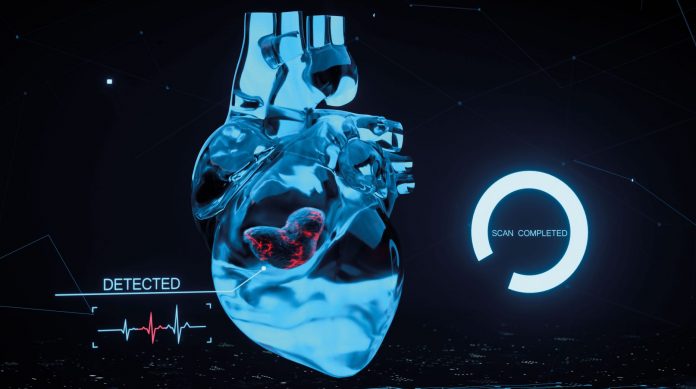
Cardiologists and radiation oncologists at Washington University School of Medicine have repurposed radiation therapy, a conventional approach used against cancer, to target patients with ventricular tachycardia.
Heart failure, a condition affecting approximately 6.7 million American adults, is characterized by the heart’s gradual loss of its ability to supply the body with oxygenated blood properly. The study comes at a critical time, with more than half of heart failure patients hospitalized for the condition succumbing to it within five years of the initial hospitalization, highlighting the urgent need for advanced therapies. Reporting in Med, scientists suggest that low-dose radiation therapy may hold the key to improving heart function in various forms of heart failure.
The team of scientists started research by evaluating nine patients with ventricular tachycardia. The patients underwent cardiac MRI before and after receiving radiation treatment, revealing a surprising improvement in heart function shortly after therapy. This enhancement was particularly notable in the left ventricle, responsible for supplying blood to the entire body. Importantly, the positive effects were observed within days, suggesting that the benefits were not solely due to the gradual reduction of arrhythmias over subsequent weeks and months.
“The radiation therapy used to treat ventricular tachycardia is targeted to a specific location in the heart; however, a large portion of the rest of the heart gets a low-dose exposure,” said co-senior author and cardiologist Ali Javaheri, MD, PhD, an assistant professor of medicine. “We wanted to understand the effects of that low-dose radiation on these patients’ hearts. There was concern that it could be harmful to overall heart function, even though it treats dangerous arrhythmia. We were surprised to find the opposite: Heart function appeared to be improved after radiation therapy, at least in the short term.”
Moreover, the researchers extended their study to mice with heart failure induced by three different causes. The mice treated with low-dose radiation exhibited improved heart function, especially in the left ventricle, mirroring the findings in human patients. Strikingly, the survival rates of mice with progressive heart failure increased after receiving radiation therapy, underscoring the potential life-saving implications of this novel approach.
The study shed light on the mechanisms underlying these positive outcomes. In both human and mouse hearts, the researchers observed reduced fibrosis (scar tissue) and a decrease in cardiac macrophages, a type of immune cell associated with inflammation in the heart. The irradiated hearts displayed fewer rapidly dividing cells, such as immune cells and fibroblasts, known contributors to worsening heart failure. The unexpected positive impact on heart remodeling and inflammation reduction has opened new avenues for exploration in the treatment of heart failure.
“The effect we see in these hearts is likely more complex than a simple reduction of rapidly dividing inflammatory immune cells. We are continuing our research to delve more deeply into what else may be happening, but we have been pleasantly surprised to see evidence that low-dose radiation in these hearts may reduce inflammation and help remodel the heart in a way that is beneficial,” explained co-senior author and radiation oncologist Carmen Bergom, MD, PhD, an associate professor of radiation oncology.
While the study marks a significant milestone in the potential repurposing of radiation therapy for heart failure, the researchers caution that further comprehensive research is needed before considering this approach for widespread clinical use. Nonetheless, these initial findings offer hope and motivation for future studies, indicating that the role of radiation therapy in the realm of cardiology may extend beyond its established role in cancer treatment.













